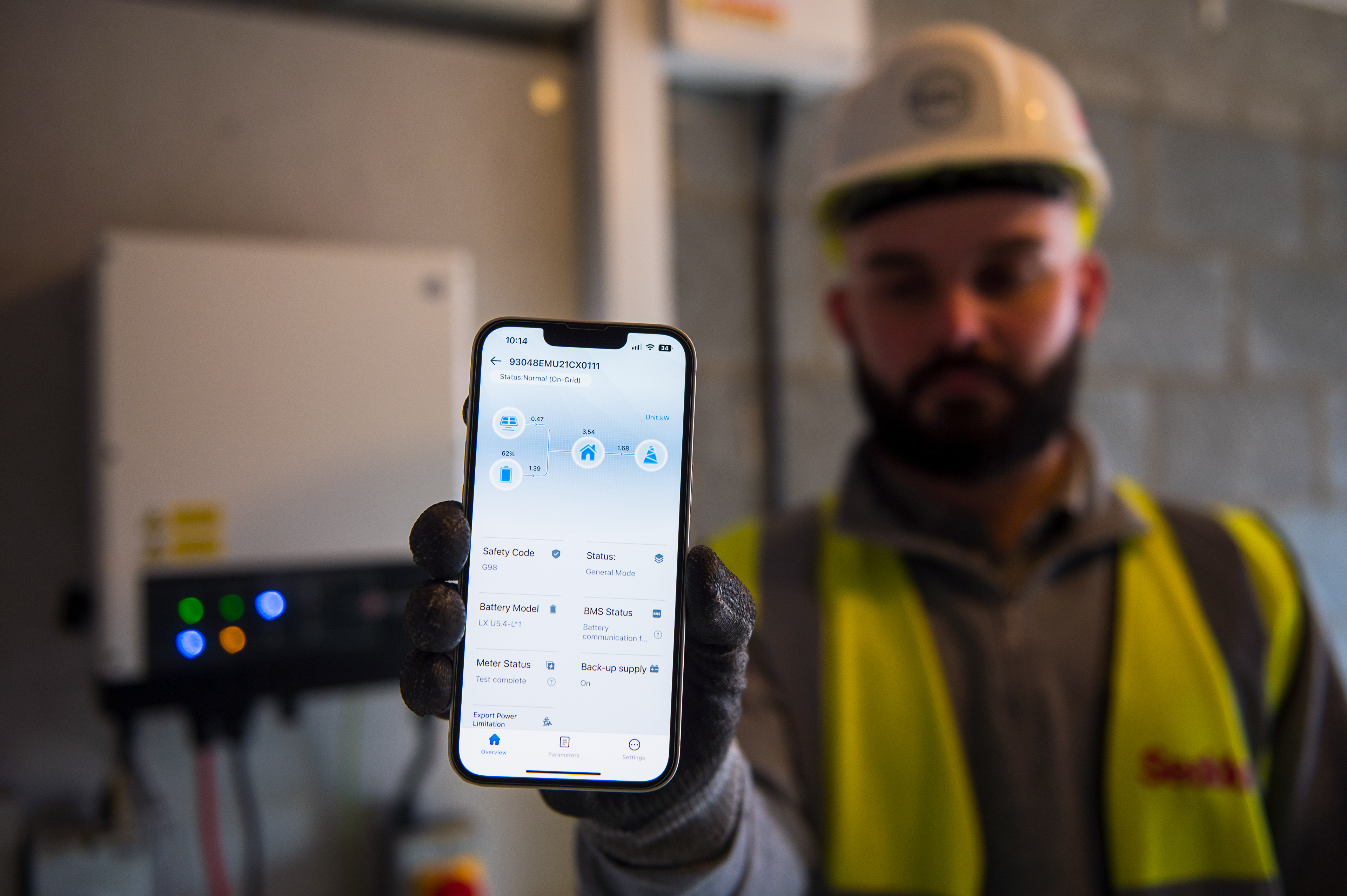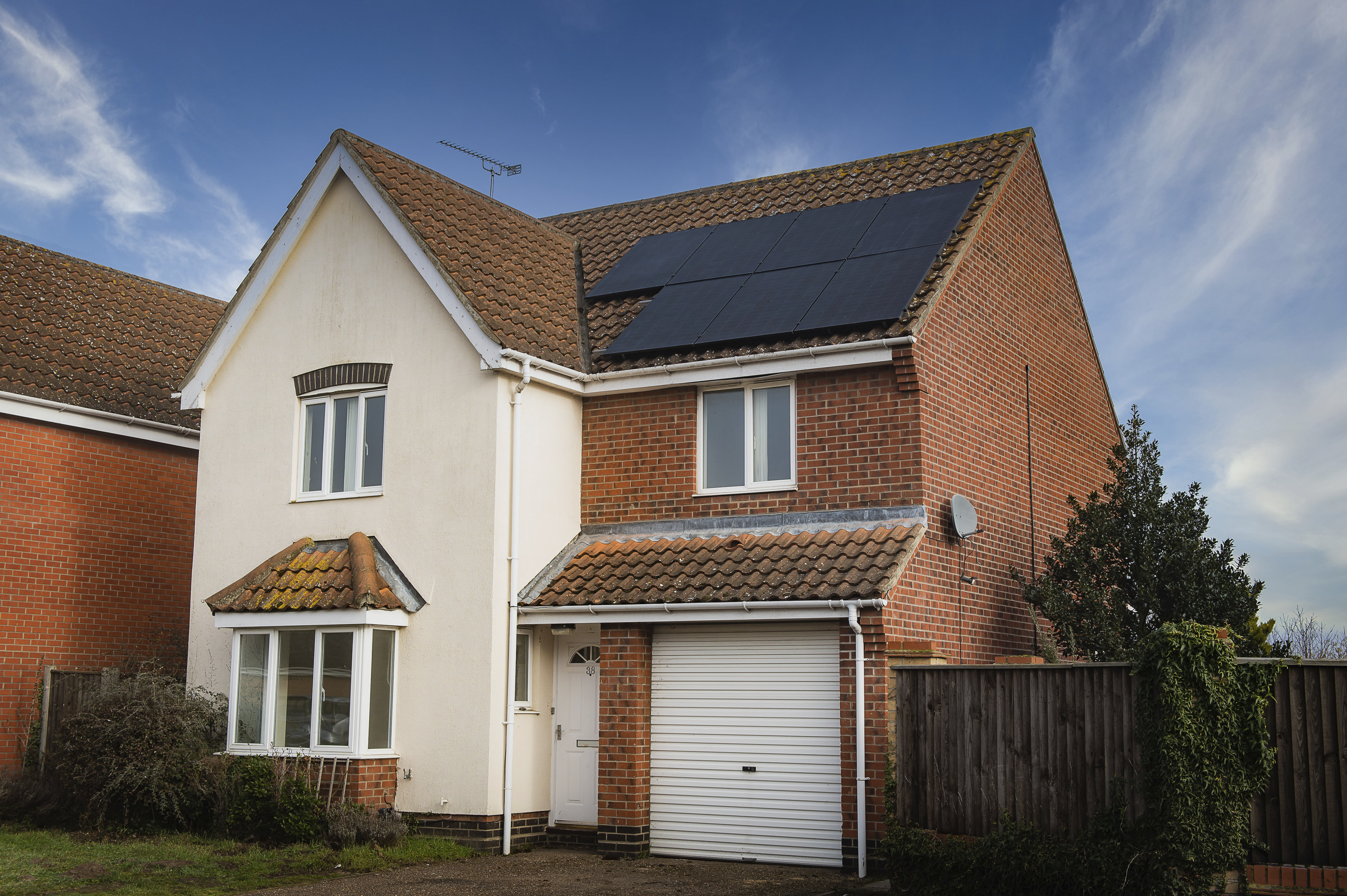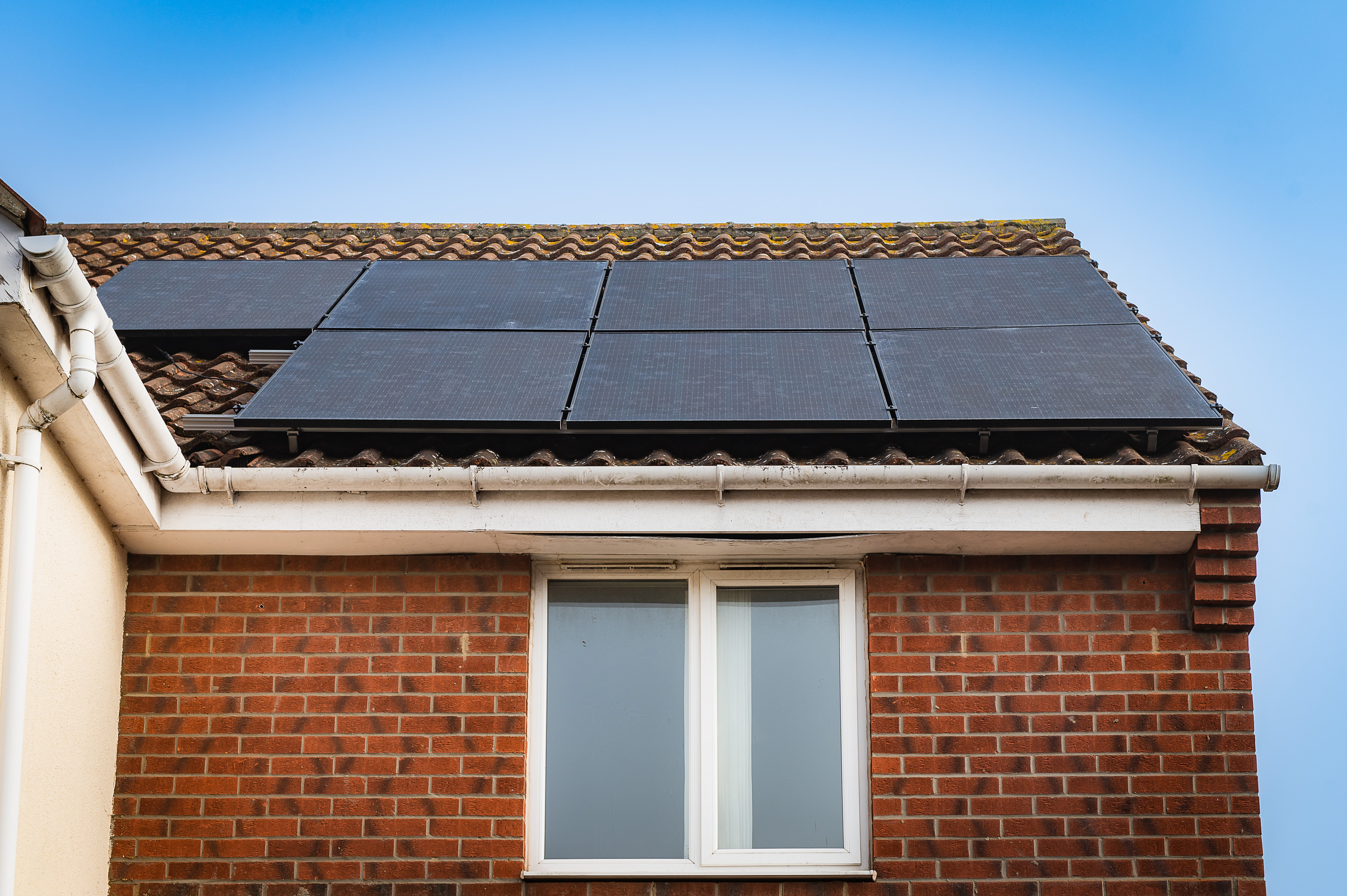Beck Row, Mildenhall consists of 100 homes in a residential estate is Suffolk. CBRE (Global Commercial Real Estate Services) are a global leader in commercial real estate services. Beck Row is home to employees and families of the American air base close the estate.
Method of procurement: All homes on the estate had an EPC rating of D. In accordance with the Government’s proposed aim to set the Minimum Energy Efficiency Standards (MEES) for all rented properties to EPC C by 2025. CBRE approached Seddon through Waypoint to work collaboratively through a negotiated procurement route, to improve the energy efficiency and sustainability of each property on the estate.
Works undertaken: All 100 homes before the works had an existing EPC rating of D. An EPC D rating is below the country’s average, and properties with this rating are classed as being in fuel poverty. To contend with the Government’s future legislation, the requirement for each property is an EPC rating of a Grade C.
In-house expertise and external partners were used to follow the retrofit principles of PAS2035. Seddon has in-house qualifications, including PAS 2030, Trustmark, MCS and NICEIC to perform the works to a high standard for CBRE.
The aim of the project includes:
- upgrading the existing heating infrastructure, whilst integrating renewable energy generation and storage
- a desire to significantly lower the residents’ energy bills, to mitigate the impact of the UK’s ‘cost of living’ on the residents and improve their energy security
- reduce the carbon footprint and CO2 emissions of the homes, in line with their individual sustainability strategies
- future-proof the housing stock to meet the Government’s Heating and Buildings strategy (proposing the phasing out of new fossil fuel gas and oil heating systems for off-gas-grid homes by 2026)
- align the housing stock in accordance with the change in MEES regulations
- improve the value of the assets through energy efficiency measures
- removal of existing oil boilers and tanks that have been subsequently replaced with standalone air source heat pumps, which provide direct hot water and space heating
- installation of Solar PV panels, with battery storage to offset any marginal increase in running costs from changing fuel source from oil to electric
Through the preconstruction and assessment stage, Seddon investigated twelve options with the customer, as part of a “value for money” report.
The twelve options consisted of twelve different strategies, where Seddon modelled the EPC band increase and relative costeffectiveness of various measures and technologies. This included fabric retrofit measures, upgrading the existing heating technologies and installing renewable generation and storage.
The strategies were a combination of standalone measures and integrated approaches.
The options Seddon analysed included solutions with values ranging from £5,400 to £24,000. The cost-effectiveness of each strategy was highly dependent on the modelled savings to residents’ bills, energy demand and annual carbon reductions.
Investigating and presenting multiple options to CBRE ensured Seddon could maximise the effectiveness of any measure chosen, as they understood through thorough and effective communication how to provide bespoke value for money to the customer and their residents.
Impact of work: Seddon improved the overall EPC rating in each home from a D to a B.
During the project, Seddon worked to ensure any scrap waste materials were recycled. This included radiators, copper tubing and the existing oil tanks. Legacy oil was re-purposed by a local registered facility.
Seddon recognises the importance of resident education to maximise a retrofit projects success. On this project, Seddon provided detailed Home User Guides, via QR codes that link to manufactures electronic user guides. Seddon is also recording interactive videos and facilitating in-person demonstrations to residents. This will promote efficient operations of the installed technologies, leading to a greater reduction of residents’ energy bills, CO2 emissions and an increase in comfort throughout the dwelling.
Engagement with consultants: Throughout the project, Seddon partnered with consultants TWC Consulting and Engineering Design Partnership (EDP). Holding regular project team meetings allowed use of their expertise to maximise the accuracy and quality of advice, modelling and service. The partnership also allowed delivery of the project to PAS2035 principles.
Lessons learned: Lessons around in-use performance are still ongoing, but the data collated through ongoing monitoring will be invaluable to learning around in-situ and project performance. This monitoring allows Seddon to compare expected results from the retrofit measures installed to the actual data. This will lead to Seddon’s proposal becoming backed by ‘real life’ data and accuracy being continuously improved. A major area of improvement for Seddon since the completion of this project, is the ability to prefabricate the PV system at a large scale before the installation stage. This gives Seddon the ability to pre-test the systems to improve temporal efficiency. Thus, decreasing installation times and minimising disruption to residents.


